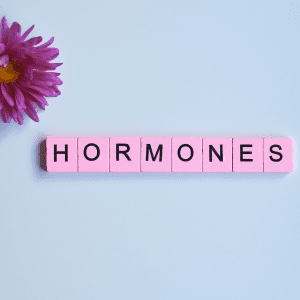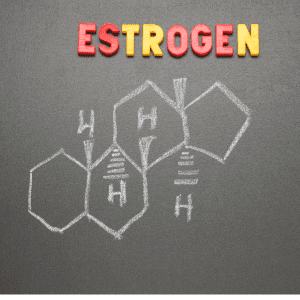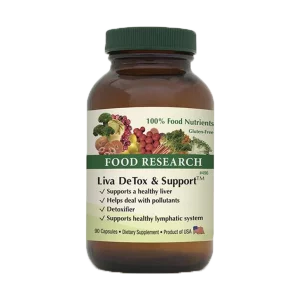Your cart is empty.
🔍 Why Hormone Imbalance Often Starts in the Gut
If you’re struggling with symptoms like PMS, bloating, fatigue, weight fluctuations, or mood swings, chances are you’ve looked at your hormone balance. But how much have you  looked at your gut?
looked at your gut?
Most conventional hormone work doesn’t do a deep dive into the microbiome. Fortunately, we know that the gut is central to hormonal regulation, especially for women dealing with estrogen dominance, perimenopause, infertility, or thyroid dysregulation.
Read on for more about:
- The gut-hormone-liver connection
- Why estrogen clearance depends on microbial health
- Which clinical lab tests reveal what’s wrong
- Natural solutions using targeted nutrition and supplements
🧬 Framework Medicine: A Systems-Based Solution
Unlike father approaches that often start with symptom-related interventions, framework medicine begins with diagnostics and logic patterns. It investigates how body systems interact and what the sequence of dysfunction is. In hormone cases, the path often looks like this:
Gut dysbiosis → Impaired estrogen detox → Hormone imbalance → PMS, fibroids, infertility
Framework medicine uses this sequence to guide highly individualized and evidence-based care.
🌱 The Estrobolome: Gut Flora That Regulates Estrogen
The estrobolome is a set of gut bacteria that help metabolize and clear estrogen from the body. When this flora becomes imbalanced (dysbiosis), your body can end up having an estrogen overload. If this occurs, it may happen in any of these ways:
- Reabsorb estrogen instead of excreting it
- Overproduce beta-glucuronidase, an enzyme that recycles estrogen into the bloodstream
- Fail to complete Phase III detoxification
And this can lead to:
- PMS and painful periods
- Fibroids and endometriosis
- Mood instability
- Weight gain
- Fertility issues
- Perimenopausal and menopausal discomfort
🔄 How Estrogen Detox Actually Works
| Phase | Where | What Happens |
| Phase I | Liver | Hydroxylation of estrogen (adds polarity) |
| Phase II | Liver | Conjugation (makes estrogen water-soluble) |
| Phase III | Gut | Microbial balance determines if it’s excreted or recycled |

If Phase III fails due to gut dysbiosis, even clean Phase I/II detox won’t prevent hormone symptoms. Most detoxification programs focus on the liver, which means that you are missing a significant part of the puzzle. And for those that do focus on the gut, they often only focus on the lower gut (intestinal bacteria), completely missing the upper digestion component which is necessary to set the framework for a more effective intestinal microbiome.
💊 Supplement Support for Gut-Hormone Balance
Your detox system runs on nutrients. Before ever testing, we like to ensure that the digestive system, starting at the mouth with the parotid glands, is breaking down food and absorbing it. Then, if your condition isn’t resolving after taking care of the upper digestion and the gut microbiome, it is time to go into testing to make sure that your systems are working.
Here are trusted whole-food supplements that support the gut-liver-hormone axis:
✅ Doctors Research® Liva Detox and Support
- Supports liver detox
- Strengthens the health and function of the liver
- Improves bowel motility
✅ Standard Process® Livaplex
- Supports Phases I & II liver detox
- Enhances bile flow
- Provides key detox cofactors (B12, folate, sulfur)
✅ Standard Process® ProSynbiotic
- Replenishes gut flora
- Supports estrogen breakdown
- Reduces microbial estrogen recycling
These supplements can be used without lab results, But if your condition isn’t resolving, it’s time to start working with the pathways.
🔬 Functional Testing That Changes the Game
🧪 1. OAP (Organic Acids Profile)
Start with the OAP to ensure that any ‘broken pathways’ for detoxification and energy production are resolved. This can be related to:
- Microbial overgrowth
- Detox cofactors (glutathione, B-vitamins)
- Oxidative stress and energy metabolism
🔍 Why it matters: Reveals if your detox systems have the micronutrient support to eliminate hormones safely.
🧪 2. GI-MAP™
A DNA-based stool test that shows:
- Pathogens, yeast, parasites
- Beta-glucuronidase levels (key for estrogen reabsorption)
- Immune and inflammatory markers (e.g., calprotectin, SIgA)
🔍 Why it matters: If beta-glucuronidase is high, your body is reabsorbing estrogen, which fuels estrogen dominance.
🧪 2. Hormone Zoomer™
A comprehensive urine test that assesses:
- Estrogen, progesterone, testosterone, DHEA, and cortisol
- Liver estrogen metabolites
- Estrogen-related cancer risk
- HPA axis (adrenal stress) patterns
🔍 Why it matters: Helps decode whether hormone symptoms are from excess estrogen, poor clearance, or low progesterone—all with root-cause clarity.
Find out about our FREE DISCOVERY CALL call to see if our Framework Medicine program is right for you.

Dr. Bonnie Juul
📚 References
- Mayo Clinic – Estrogen and Women’s Health
- Cleveland Clinic – The Microbiome and Hormones
- PubMed – Beta-glucuronidase and Estrogen Reabsorption
- Johns Hopkins – Detox Pathways and the Liver

